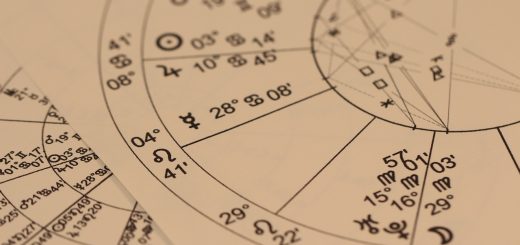Karma and Reincarnation

Hey there, amazing readers! 🖐️ Just a quick note: yes, we know there are a lot of ads here. Trust us, we get it—it’s not the prettiest look, but they help us keep this blog alive and kicking. Those pesky little ads cover the costs of all the behind-the-scenes magic, from hosting and tech stuff to creating content we hope you’ll love.
We’re committed to delivering quality posts, and your support (even just sticking around despite the ads) means everything to us. So, bear with us, and thanks for helping us keep the good vibes rolling. Now, on to the fun stuff! 😉
TRANSLATE BUTTON AT THE END OF THE ARTICLE
A Quick Overview
In the vast tapestry of spiritual beliefs around the world, the concepts of karma and reincarnation hold significant importance for many individuals seeking a deeper understanding of life and the universe.
Karma, originating from ancient Indian religions such as Hinduism and Buddhism, is often described as the law of cause and effect, suggesting that our actions have consequences that can determine our future experiences.
Reincarnation, on the other hand, posits that the soul is reborn into new bodies through a cycle of birth, death, and rebirth, offering opportunities for personal growth and spiritual evolution across lifetimes.
Exploring the Belief in Karma and Reincarnation
The belief in karma and reincarnation has been prevalent in various cultures and religions throughout history, shaping people’s views on morality, justice, and the afterlife.
While some may view these concepts as purely metaphysical or philosophical, for others, they provide a framework for understanding the complexities of human existence and the interconnectedness of all beings in the universe.
By delving deeper into these beliefs, individuals can gain insights into their own actions, intentions, and the broader implications of their choices in this life and beyond.
Understanding the Concept of Karma
Karma, in its simplest form, refers to the idea that our thoughts, words, and deeds create energy that will eventually return to us in some form or another.
This cosmic law suggests that positive actions lead to positive outcomes, while negative actions result in negative consequences.
Therefore, the concept of karma serves as a moral compass, guiding individuals towards ethical behavior and mindfulness in their interactions with others.
By cultivating awareness of their intentions and actions, individuals can strive to create positive karma that will benefit them and those around them.
The Cycle of Rebirth in Reincarnation
Reincarnation is the belief that the soul undergoes a series of births and deaths, moving from one body to another in a continuous cycle of rebirth.
This process is often viewed as a means of spiritual growth and evolution, allowing individuals to learn important lessons, resolve past conflicts, and fulfill their karmic obligations over multiple lifetimes.
While the specifics of reincarnation may vary across different cultures and belief systems, the core idea remains consistent: the soul is eternal, and its journey through various incarnations offers opportunities for learning, growth, and redemption.
Do Good Deeds Lead to Good Karma?
The relationship between good deeds and good karma is a fundamental aspect of the concept of karma.
According to this belief, engaging in positive actions, such as helping others, showing compassion, and practicing generosity, can generate positive energy that will ultimately return to the individual in the form of blessings, good fortune, and spiritual growth.
By aligning their actions with moral values and ethical principles, individuals can cultivate a store of positive karma that will shape their future experiences and contribute to their overall well-being.
The Role of Intentions in Karma
While the outcomes of our actions are important in determining our karma, the intentions behind those actions play a crucial role in shaping the energy we generate.
In the context of karma, intentions are seen as the driving force behind our deeds, influencing the quality of the energy we put out into the universe.
By cultivating pure intentions, such as kindness, compassion, and sincerity, individuals can ensure that their actions are aligned with positive values and contribute to the creation of good karma.
Ultimately, mindfulness of our intentions can lead to a more conscious and intentional way of living that is conducive to spiritual growth and enlightenment.
Reincarnation Across Different Cultures
The belief in reincarnation is not limited to a single culture or religious tradition but has been a recurring theme in various societies throughout history.
From ancient Egypt and Greece to modern-day Hinduism, Buddhism, and even some Native American traditions, the idea of life after death and the soul’s journey through multiple incarnations has captured the imagination of people across different continents and time periods.
While the specifics of reincarnation may differ, the underlying principle remains consistent: the soul’s evolution through a cycle of birth, death, and rebirth as a means of spiritual progression and self-realization.
How Past Lives Influence Present Life
One of the intriguing aspects of reincarnation is the idea that past lives can influence our present experiences, relationships, and challenges.
Proponents of reincarnation believe that the soul carries memories, traumas, and lessons from previous incarnations, shaping our personalities, talents, and karmic debts in the current lifetime.
By exploring past life regression, meditation, and other spiritual practices, individuals can gain insights into their past lives and how those experiences may be impacting their present circumstances.
This awareness can lead to healing, personal growth, and a deeper understanding of the soul’s journey through time.
Debunking Common Myths About Karma
Despite the widespread belief in karma, there are several common myths and misconceptions surrounding this concept that can lead to misunderstandings and confusion.
One such myth is the notion of instant karma, where individuals expect immediate consequences for their actions, when in reality, karma operates on a more complex and nuanced timescale.
Another myth is the idea of karma as a form of punishment, when in fact, karma is meant to be a teaching tool for personal growth and spiritual development.
By dispelling these myths and gaining a deeper understanding of karma as a subtle and intricate cosmic law, individuals can work towards creating positive outcomes and cultivating harmony in their lives.
Reincarnation: A Spiritual Journey
Reincarnation is often viewed as a spiritual journey that allows the soul to evolve, learn, and transcend through multiple lifetimes.
This cyclical process of birth, death, and rebirth offers individuals the opportunity to work through karmic challenges, resolve past conflicts, and achieve higher levels of consciousness and enlightenment.
By embracing the belief in reincarnation, individuals can approach life’s experiences with a sense of continuity, purpose, and growth, knowing that each incarnation is a stepping stone towards greater self-realization and spiritual fulfillment.
The Connection Between Karma and Destiny
The relationship between karma and destiny is a complex and intertwined one, with karma shaping our present circumstances and future experiences, while destiny represents the ultimate path or purpose of our lives.
While karma is based on the law of cause and effect, influencing our choices and actions through the energy we create, destiny is often seen as a predetermined course that we are meant to follow.
By understanding the interplay between karma and destiny, individuals can navigate life’s challenges with grace, acceptance, and a sense of personal agency, knowing that their actions have the power to shape their ultimate destiny.
Can Karma Be Changed?
One of the key questions surrounding the concept of karma is whether it can be changed or altered through conscious effort and intention.
While karma is often viewed as a cosmic law that governs the consequences of our actions, some spiritual traditions suggest that individuals can mitigate negative karma and create positive outcomes through acts of kindness, selflessness, and spiritual practice.
By cultivating awareness, mindfulness, and a sense of moral responsibility, individuals can work towards transforming their karma and creating a more harmonious and fulfilling life path.
While changing karma may require time, effort, and dedication, the potential for personal growth and spiritual evolution is within reach for those who are willing to embrace the teachings of karma and make positive changes in their lives.
Embracing the Teachings of Karma and Reincarnation
In conclusion, the beliefs in karma and reincarnation offer individuals a profound and transformative framework for understanding the nature of existence, the interconnectedness of all beings, and the eternal journey of the soul through time.
By exploring the concepts of karma and reincarnation, individuals can gain insights into their actions, intentions, and the karmic patterns that shape their experiences in this life and beyond.
Through conscious effort, ethical living, and spiritual practice, individuals can work towards creating positive karma, resolving past karmic debts, and ultimately achieving spiritual growth, enlightenment, and liberation from the cycle of birth and death.
Embracing the teachings of karma and reincarnation can lead to a deeper sense of purpose, fulfillment, and interconnectedness with the universe, fostering a more compassionate, harmonious, and spiritually enriched way of life.

The Enlightenment Journey is a remarkable collection of writings authored by a distinguished group of experts in the fields of spirituality, new age, and esoteric knowledge.
This anthology features a diverse assembly of well-experienced authors who bring their profound insights and credible perspectives to the forefront.
Each contributor possesses a wealth of knowledge and wisdom, making them authorities in their respective domains.
Together, they offer readers a transformative journey into the realms of spiritual growth, self-discovery, and esoteric enlightenment.
The Enlightenment Journey is a testament to the collective expertise of these luminaries, providing readers with a rich tapestry of ideas and information to illuminate their spiritual path.
Our Diverse Expertise 🌟
While our primary focus is on spirituality and esotericism, we are equally passionate about exploring a wide range of other topics and niches 🌍📚. Our experienced team is dedicated to delivering high-quality, informative content across various subjects ✨.
To ensure we provide the most accurate and valuable insights, we collaborate with trusted experts in their respective domains 🧑🏫👩🏫. This allows us to offer well-rounded perspectives and knowledge to our readers.
Our blog originally focused on spirituality and metaphysics, but we’ve since expanded to cover a wide range of niches. Don’t worry—we continue to publish a lot of articles on spirituality! Frequently visit our blog to explore our diverse content and stay tuned for more insightful reads.







